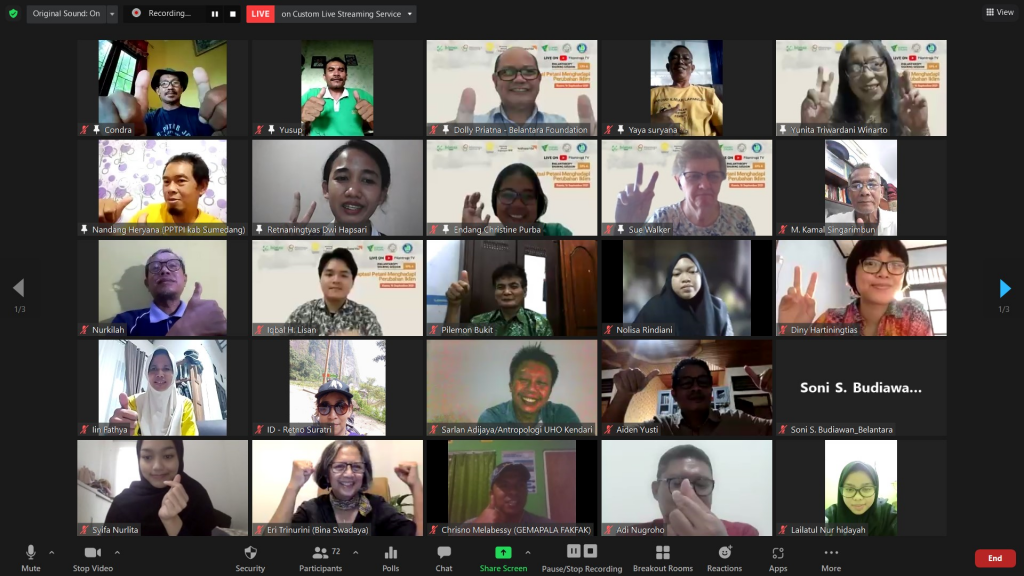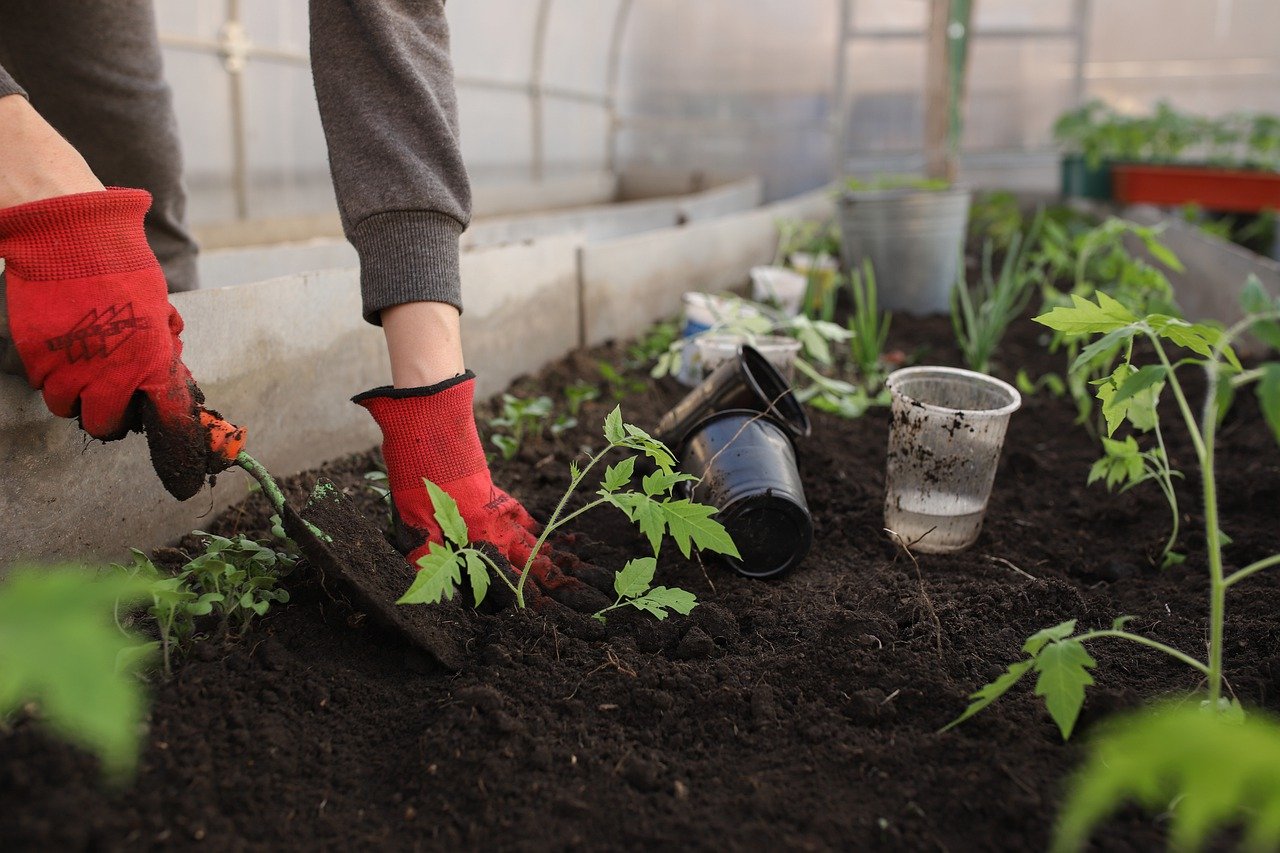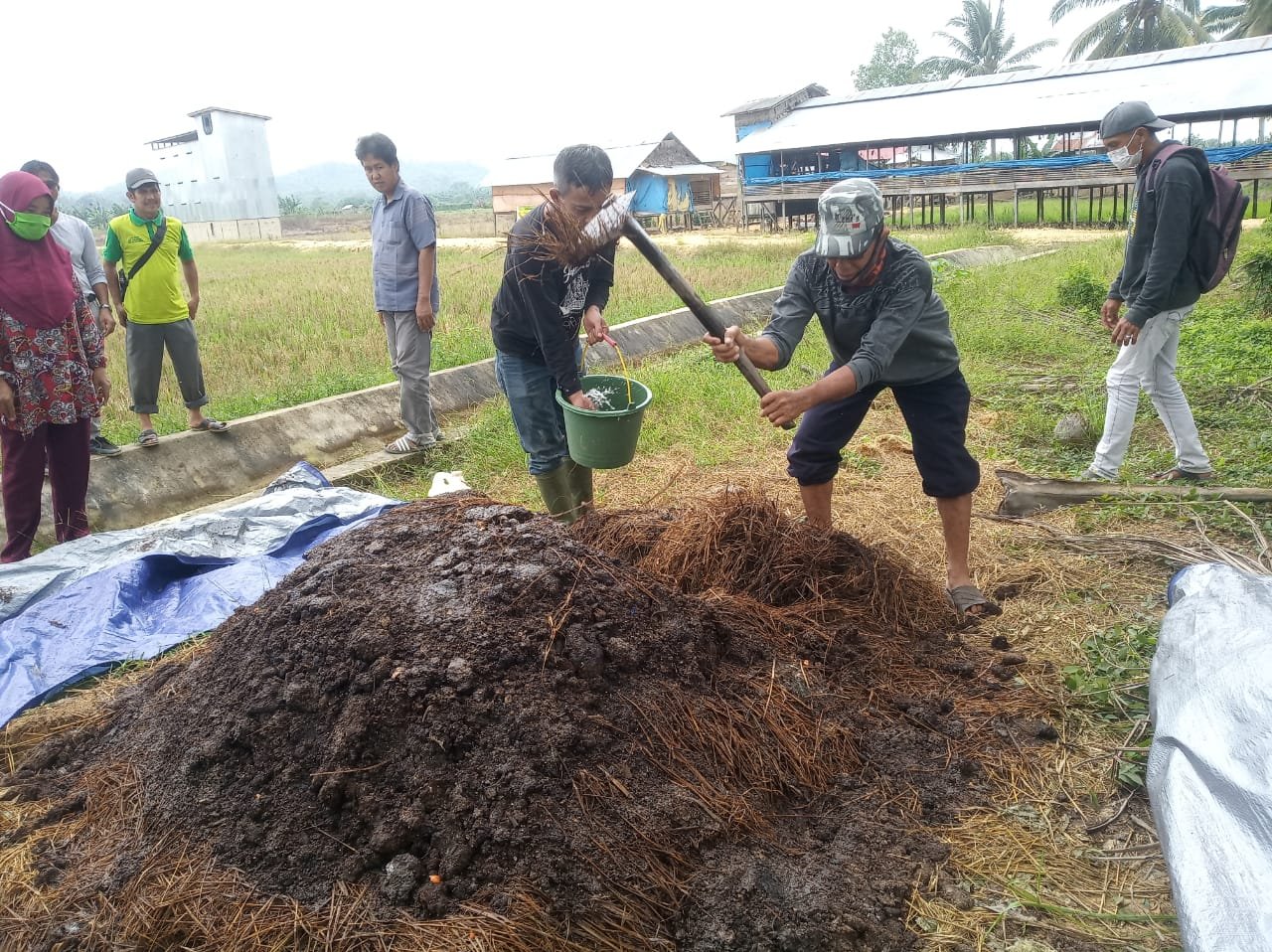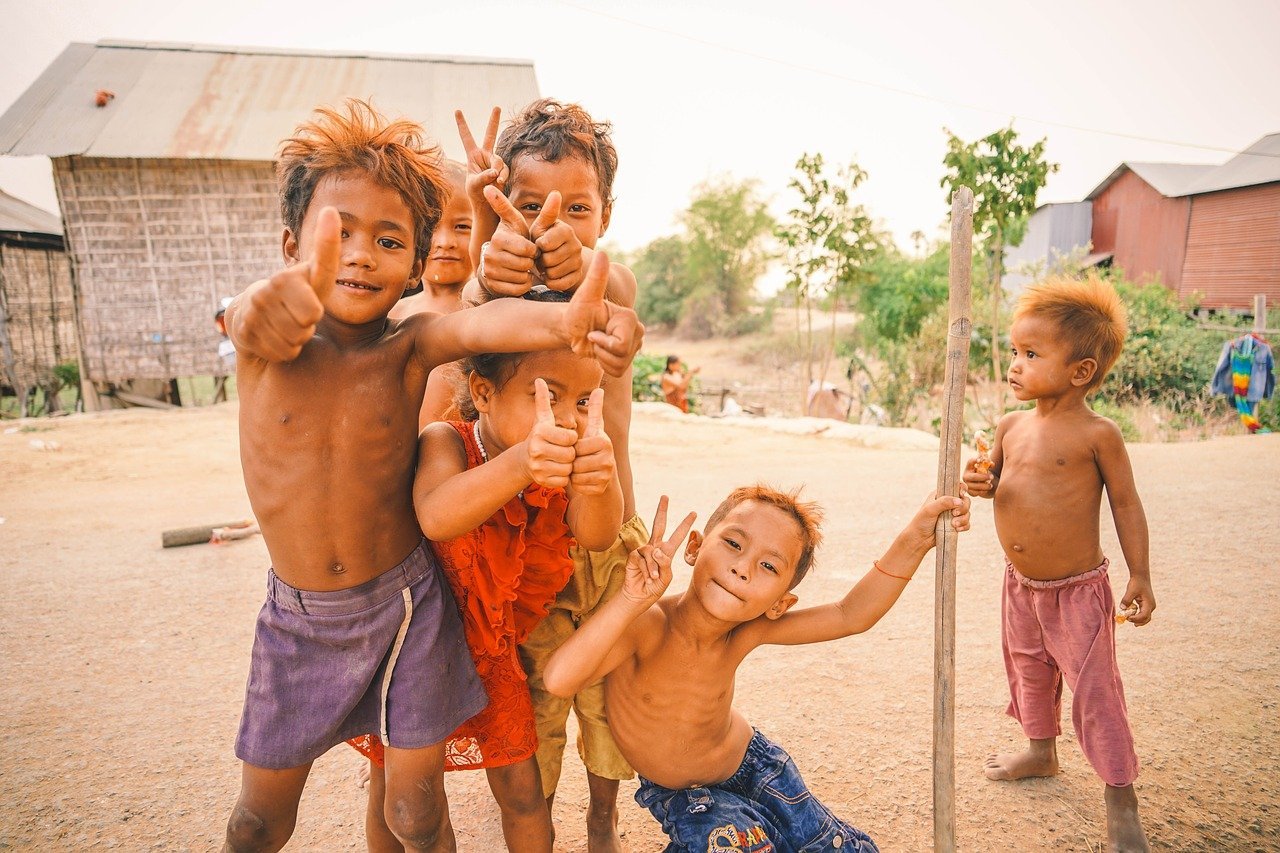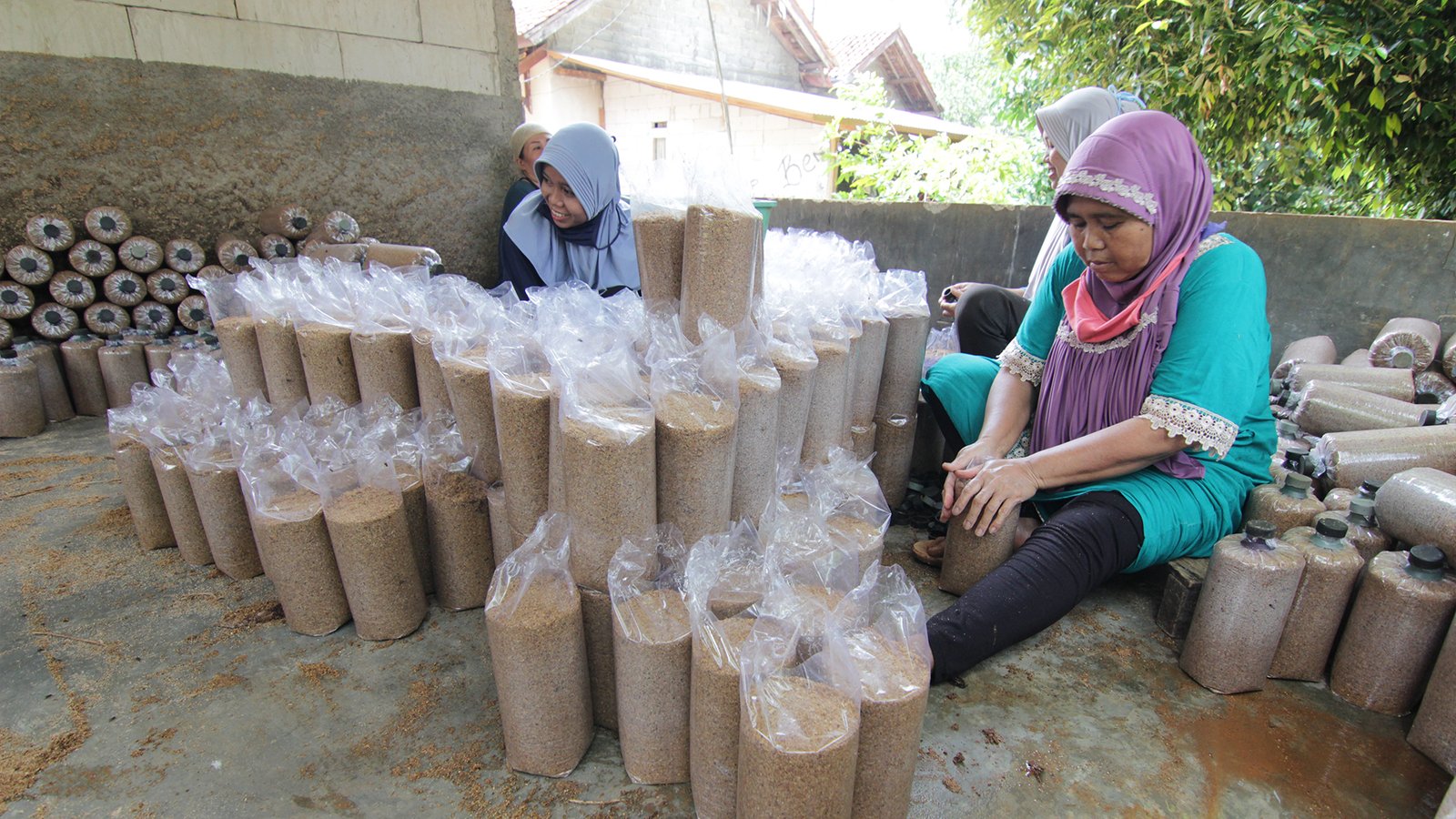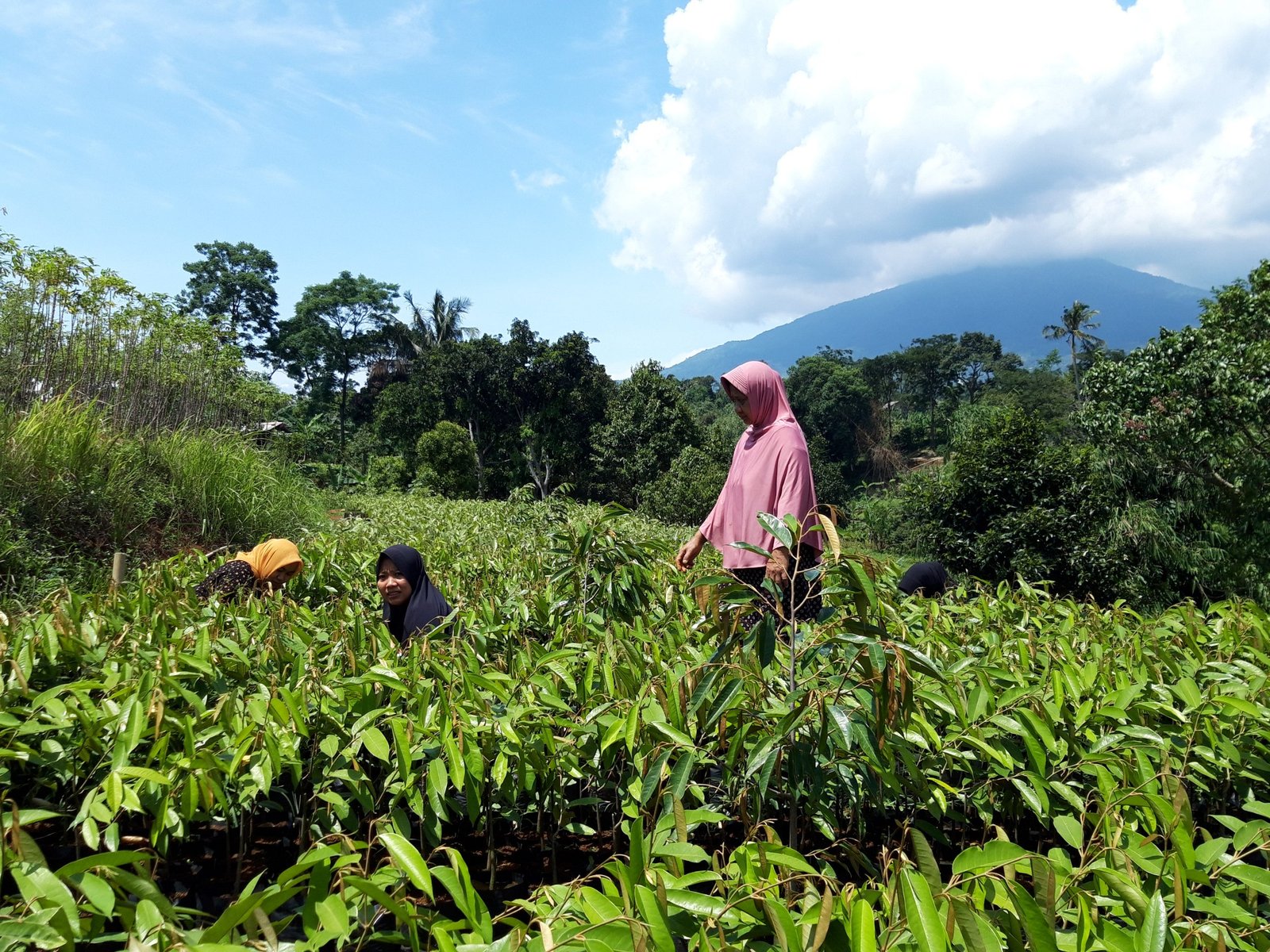
Climate services to farmers are now urgently needed to improve their ability to anticipate increasingly unpredictable climate conditions. Climate change and extreme weather changes that are currently occurring have increased the number of hunger that impacts the residents’ difficulty in accessing adequate food sources.
The latest data from the United Nations even states that hunger rates have increased by 11% after not growing for 15 years.
The World Food Programme (WFP) warns that climate change on Earth will devastate the agricultural sector. The influence of climate change on the agricultural sector is multi-dimensional, ranging from resources, agricultural infrastructure, and agricultural production systems to food security and independence, as well as the welfare of farmers and society.
Through a philanthropy sharing session webinar with the theme Adaptation of Farmers to Face Climate Change organized by Belantara Foundation in collaboration with Filantropi Indonesia, efforts are made to take lessons from field practices that have been carried out by several institutions that are directly involved in helping farmers in anticipating unpredictable natural conditions.
One of them is the “Field Scientific Warung” from the University of Indonesia which is an agrometeorology learning arena for farmers based on a cross-disciplinary approach between agrometeorology and anthropology, as well as transdisciplinary between scientists and farmers, agricultural officers, and related parties.
Prof. Yunita T. Winarto, Ph.D., coordinator of the Field Scientific Warung Team, University of Indonesia, who is also a member of the Bina Swadaya Foundation Trustees, said that the seeds of farmer adaptation are skills to anticipate.
“So how can the farmer be adept at anticipating what will happen in the future, interpreting current conditions, and learning from past experiences? And these are all basic capabilities about making response strategy decisions on the increasingly unpredictable consequences of climate change,” he said.
In his presentation, he revealed that the agricultural paradigm in the last 50 years is a green revolution oriented towards high production results and supported by technology packages in the form of superior seeds, large-scale irrigation, chemical fertilizers, chemical pesticides, and other agricultural technologies. According to him, this positions farmers as achievers of production targets like machines.
“What are the consequences if you use technology like that? If you use excessive chemistry, make their bodies, make plants, make soil, make water, as if they are marginalized ecologically and culturally in their land, their knowledge is enriched or not,” said Prof. Yunita.

Prof. Yunita T. Winarto, Ph.D., coordinator of the Field Scientific Warung Team, University of Indonesia
However, through climate change response agriculture, Prof. Yunita revealed that the orientation is to enable farmers to anticipate and make decisions to respond to the consequences of climate change.
As for the goal to reduce or avoid farmers’ crop failure, “We need not only food security but to strengthen ecosystems and production. This is what we need to assist farmers so that they can develop planting patterns and strategies”, he said.
“This needs services, and the main thing is services in terms of education and literacy. I feel this is the lack of education and literacy in farmers, mostly the technology,” he continued.
This learning arena is a manifestation of the commitment to continuous education farmers need to survive in changing and increasingly diverse climatic conditions, with risks that are not easily predicted.
A precise and accurate adaptation strategy is needed to avoid or reduce the risk of crop failure. For this reason, the enrichment of knowledge and literacy on climate and weather conditions and their chances to their land and crops, as well as increasing the ability to anticipate the consequences of climate change, is needed.
Since 2008, Field Scientific Warungs began to be practiced in Gunungkidul Regency, Yogyakarta, in 2009 in Indramayu Regency, West Java, in 2014 in East Lombok Regency, West Nusa Tenggara, and in 2018 in Sumedang Regency, West Java.
The method of continuous learning with farmers as researchers in dialogical communication with academics and various parties is the primary approach taken by both parties, namely between scientists and farmers.
There are eight climate services introduced and developed in the learning arena, namely: 1) Guidelines for measuring rainfall every day; 2) Daily agroecosystem observation guide; 3) analysis and evaluation of crop yields; 4) Organizing Field Scientific Stalls by independent farmers; 5) Formulation and dissemination of seasonal climate scenarios; 6) new knowledge sharing services; 7) Guide to “win-win” experiments on farmers’ land; 8) Digital documentation and processing of farmer data.

Field Scientific Stalls Documentation.
Belantara Foundation, as the cluster coordinator, added, “Climate change, including extreme weather changes, will greatly affect all aspects of life on earth, including humans. Food crises caused by prolonged crop failure can occur due to unpredictable weather. This is one of the real threats to us. Therefore, we all must understand the impact of the climate crisis and prevent it from now before it is too late,” said Dr. Dolly Priatna, Executive Director of Belantara Foundation.
In line with the movement to support farmers in climate change problems, Syamsul Ardiansyah, Senior Officer of the Dompet Dhuafa Strategic Alliance, also said that the main focus of climate change adaptation for farmers is capacity building that summarizes all agricultural good practices that have been tested in the past with innovations to face threats due to climate change.
The philanthropic movement is transforming to focus on charity activities, empowerment activities, and policy advocacy.
“One of them aims to be a generator of welfare in the agricultural sector (directly impacting farmers) as well as a long impact on food sovereignty,” said Syamsul Ardiansyah.
Meanwhile, Wahana Visi Indonesia (WVI) also provides much assistance and helps farmers in various locations in Indonesia to adapt to climate change. Endang Christine Purba, Economic & Agriculture Development Specialist of WVI, explained farmers’ adaptation efforts through natural regeneration management. One of the assisted farmers in East Sumba said that now trees are something we must pay attention to and a form of investment. Planting trees can be a guaranteed investment for his children in the future.
This activity is a joint activity of the Food Security and Nutrition Philanthropy Cluster with the Environment and Conservation Philanthropy Cluster in preventing hunger due to the environmental crisis in collaboration with Belantara Foundation, Field Science Warung, University of Indonesia, Wahana Visi Indonesia, Dompet Dhuafa, Climate Change Response Farmer Association of Indramayu Regency and Sumedang Regency.
“In terms of the involvement of philanthropic institutions in climate change, this has become the program’s target as a joint contribution to achieving SDGs. But in fact, preparing to prevent food crises is prioritized while looking for other strategic steps to avoid the threat of other climate disasters,” said Rizal Algamar, Chairman of the Indonesian Philanthropy Management Board.
On the other hand, according to him, many philanthropic institutions have initiated regulations and policies, access to technology, and various funding mechanisms as a commitment to face the threat of climate change.
